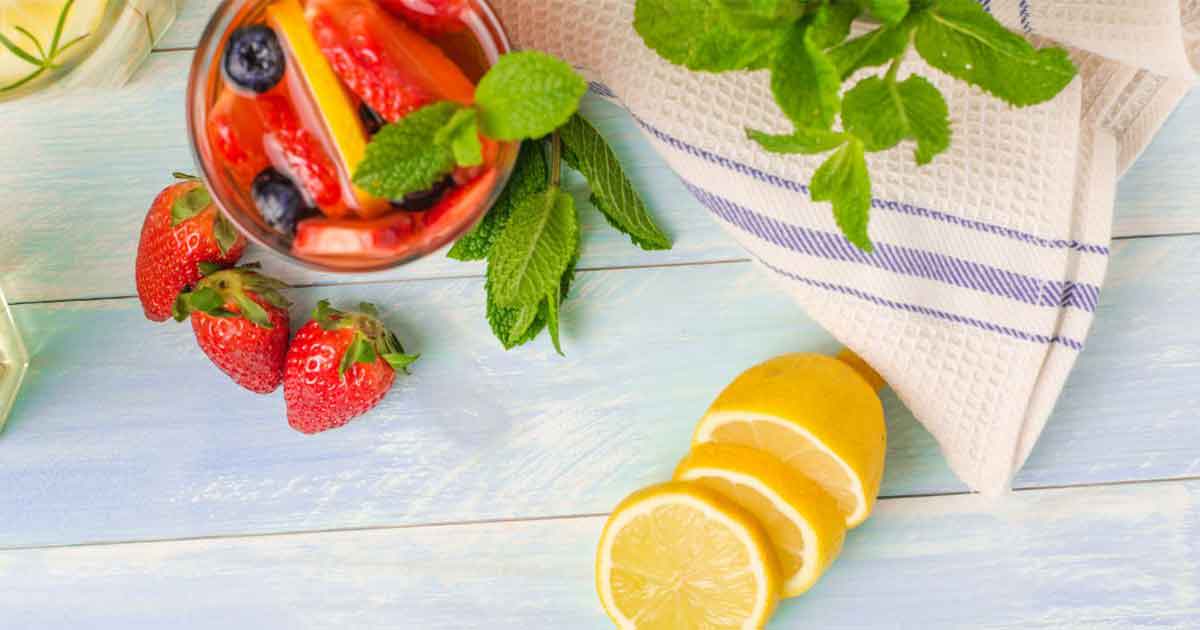True Cellular Formulas Team - December 19, 2024
Why You Should Ditch Aluminum Pans
A Hidden Holiday Hazard

Preparing a holiday feast is one of the most cherished traditions of the year. From roasting the turkey to baking casseroles, every step is done with care and love. However, the cookware you use can have a hidden impact on the health and safety of your meal. Aluminum pans and BPA-free plastic cooking bags, while convenient, may introduce harmful toxins into your holiday dishes. Here’s why you should reconsider these options and how to choose safer alternatives for your family meals.
The Health Risks of Aluminum Pans
Many home cooks use aluminum pans because they’re inexpensive and lightweight, but this convenience comes at a cost. Aluminum is highly reactive, especially when exposed to acidic or salty foods like marinades, stuffing, or gravies. During cooking, aluminum can leach into food. This leaching increases under high heat, making roasting and baking in aluminum pans particularly problematic.[1]
Studies have linked aluminum exposure to serious health concerns, including neurodegenerative diseases such as Alzheimer’s and Parkinson’s. As a neurotoxin, aluminum can interfere with brain function, potentially accelerating cognitive decline. Long-term exposure has also been associated with hormone disruption, impaired bone health, and kidney damage. While the body can eliminate small amounts of aluminum, frequent exposure to cookware can overwhelm natural detox processes and lead to tissue accumulation.[2]
The Hidden Dangers of BPA-Free Plastic Cooking Bags
If you’ve been using BPA-free plastic cooking bags as an alternative to aluminum pans, think again. Many of these bags contain phthalates and other plasticizers that can leach into food when exposed to heat. Even "BPA-free" options are not necessarily safe. Studies show that some BPA alternatives mimic hormone activity and disrupt the endocrine system.
Plastic cooking bags are designed to withstand high oven temperatures, but the heat increases the risk of chemicals seeping into your food. Phthalates and plasticizers have been linked to hormonal imbalances, reproductive health issues, and even certain cancers. Using plastic for cooking adds unnecessary risks, especially when safer alternatives exist.[3]
Better Choices for Non-Toxic Cooking
Cooking your holiday meals doesn’t have to involve harmful materials. Non-toxic cookware not only protects your health but also enhances the flavor and quality of your food. Here are some safer alternatives:
100% Ceramic Cookware
Ceramic cookware is made entirely from natural materials
and is free from harmful chemicals like PFAS, PFOA, and heavy metals. Its even heat distribution and natural non-stick
properties make it perfect for roasting, baking, and slow cooking. Plus, ceramic doesn’t react with acidic
foods, so your dishes retain their intended flavor.[4]
Glass Bakeware
Glass is one of the safest and most versatile cookware options.
It’s completely inert, meaning it won’t react with your food or release toxins. Glass bakeware is ideal
for roasting vegetables, baking stuffing, or preparing desserts. Its transparency also lets you watch your dishes as
they cook.[5]
18/0 Stainless Steel Roasting Pans
For those who prefer metal cookware, 18/0
stainless steel is an excellent choice. It’s nickel-free, which makes it less likely to leach metals into your
food. Stainless steel roasting pans are durable, distribute heat evenly, and are perfect for large cuts of meat like
turkey or ham.[6]
Tips for Safer Holiday Cooking
- Avoid aluminum foil and pans for high-heat cooking or contact with acidic foods.
- Replace plastic cooking bags with reusable options like silicone baking mats or parchment paper.
- Invest in high-quality ceramic, glass, or stainless steel cookware to ensure safety and durability.
- Store leftovers in glass containers instead of plastic to avoid chemical leaching.
The Bottom Line
Holiday meals are about bringing loved ones together and creating lasting memories. Choosing non-toxic cookware ensures that the food you prepare is delicious and safe for everyone at the table. By ditching aluminum pans and plastic cooking bags, you’re taking a simple yet impactful step toward protecting your family’s health. With options like ceramic, glass, and stainless steel, you can enjoy a healthier, toxin-free holiday feast without sacrificing flavor or tradition.
- Stahl, Thorsten, et al. “Migration of Aluminum from Food Contact Materials to Food—a Health Risk for Consumers? Part III of III: Migration of Aluminum to Food from Camping Dishes and Utensils Made of Aluminum.” Environmental Sciences Europe, vol. 29, no. 1, 2017, p. 17
- Inan-Eroglu, Elif, and Aylin Ayaz. “Is Aluminum Exposure a Risk Factor for Neurological Disorders?” Journal of Research in Medical Sciences : The Official Journal of Isfahan University of Medical Sciences, vol. 23, June 2018, p. 51.
- Yang, Chun Z., et al. “Most Plastic Products Release Estrogenic Chemicals: A Potential Health Problem That Can Be Solved.” Environmental Health Perspectives, vol. 119, no. 7, July 2011, pp. 989–96.
- Fralick, Michael, et al. “Lead Toxicity from Glazed Ceramic Cookware.” CMAJ : Canadian Medical Association Journal, vol. 188, no. 17–18, Dec. 2016, pp. E521–24.
- Moura, Joana, et al. “Consumers’ Practices and Safety Perceptions Regarding the Use of Materials for Food Preparation and Storage: Analyses by Age Group.” Food and Chemical Toxicology: An International Journal Published for the British Industrial Biological Research Association, vol. 178, Aug. 2023, p. 113901
- Kuligowski, J., and K. M. Halperin. “Stainless Steel Cookware as a Significant Source of Nickel, Chromium, and Iron.” Archives of Environmental Contamination and Toxicology, vol. 23, no. 2, Aug. 1992, pp. 211–15.



